The coronavirus pandemic poses a unique challenge for Syrians, especially in underserved communities with severe shortages of medical care. The Abu Qabei camp in northeast Syria, which hosts Internally Displaced Persons (IDP) – consisting of more than 250 families – is no exception. However, Hussein al-Ali, a nurse who fled to Raqqa from Idlib city two years ago, has given IDPs in the camp a glimpse of hope. Hussein worked with the camp’s management to establish the camp’s only medical clinic and provide healthcare for displaced people.
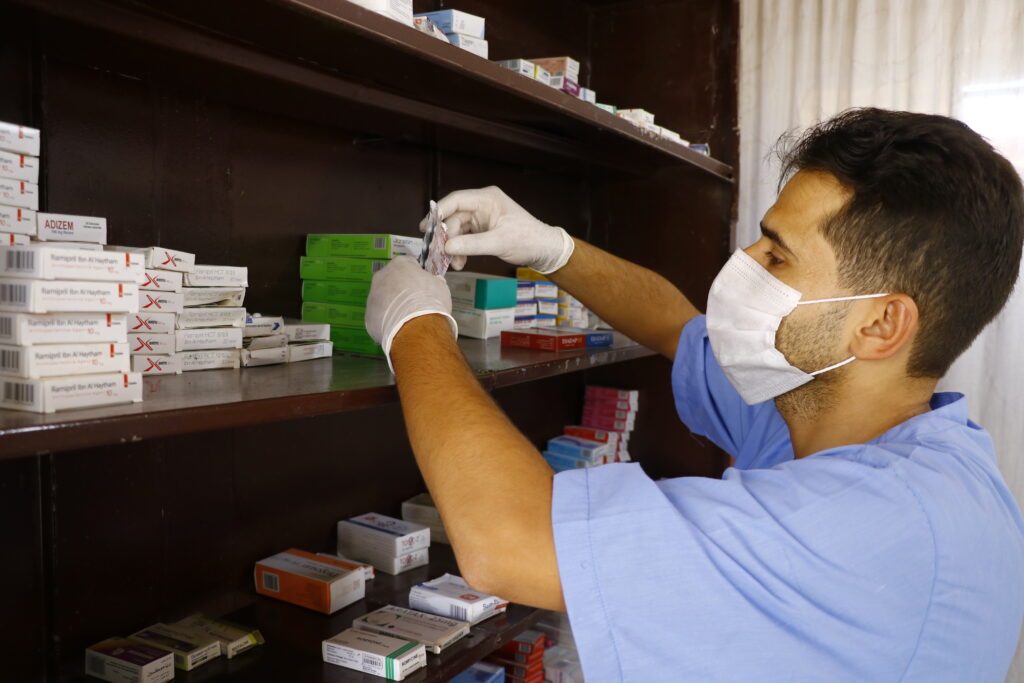
Alongside other health workers at the clinic, Hussein focuses on raising awareness about COVID-19, prioritising how IDPs can protect themselves using the few resources available. He works with the camp’s administration to minimise and manage the spread of the pandemic inside the camp. “I try to advise the camp’s residents on basic hygiene and social distancing measures as these are the most effective precautionary measures,” said Hussein.
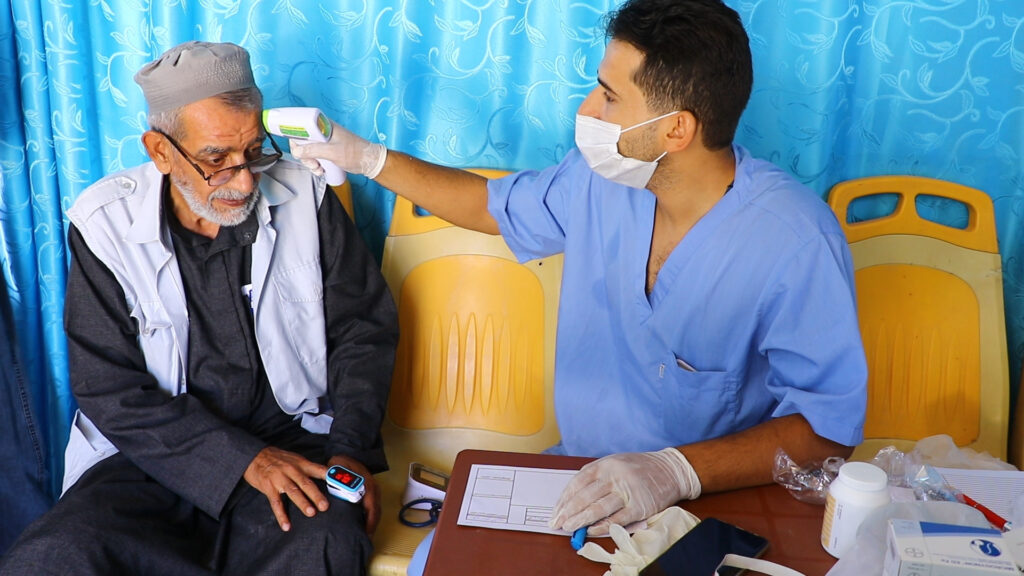
Abu Qabei camp is located on the west side of Raqqa city. In 2018, the camp received IDP families from Idlib and has since been receiving other IDP families from northwestern Syria. As an informal camp, Abu Qubei is not recognised by international organisations and so does not receive similar levels of assistance. Working with the camp’s administration and local authorities, Hussein has secured basic supplies to equip the clinic and handle critical and emergency cases.
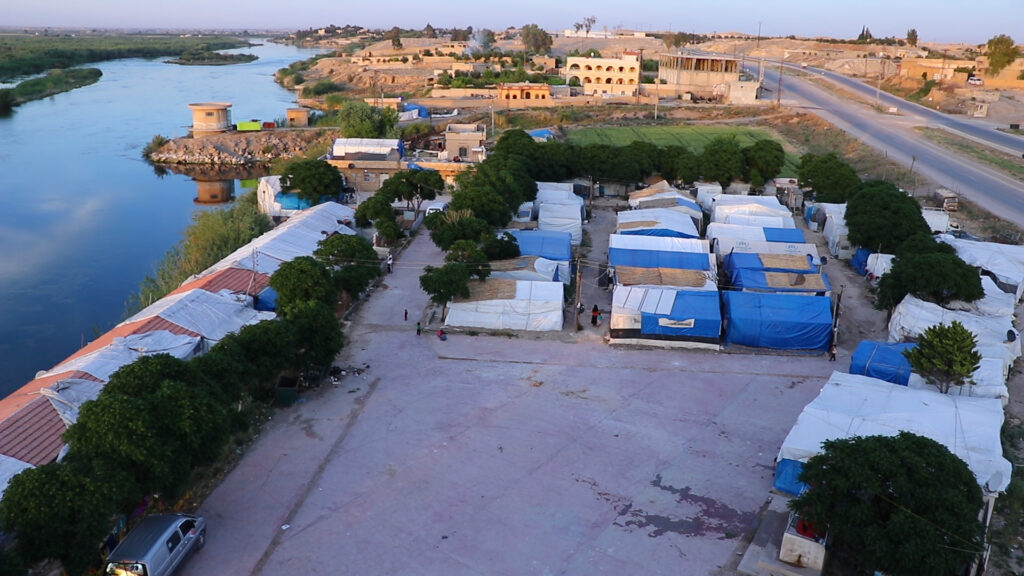
At the clinic, all services are provided free of charge, including medicine, treatment and first aid. “The medical point provides emergency medical services around the clock, which reassures the residents,” said Hussein. Hussein built close relationships and collaborate with medical committees and hospitals in neighbouring areas, where he transfers cases that cannot be handled at the camp. “Critical cases are usually sent to hospitals in Raqqa city,” said Hussein.
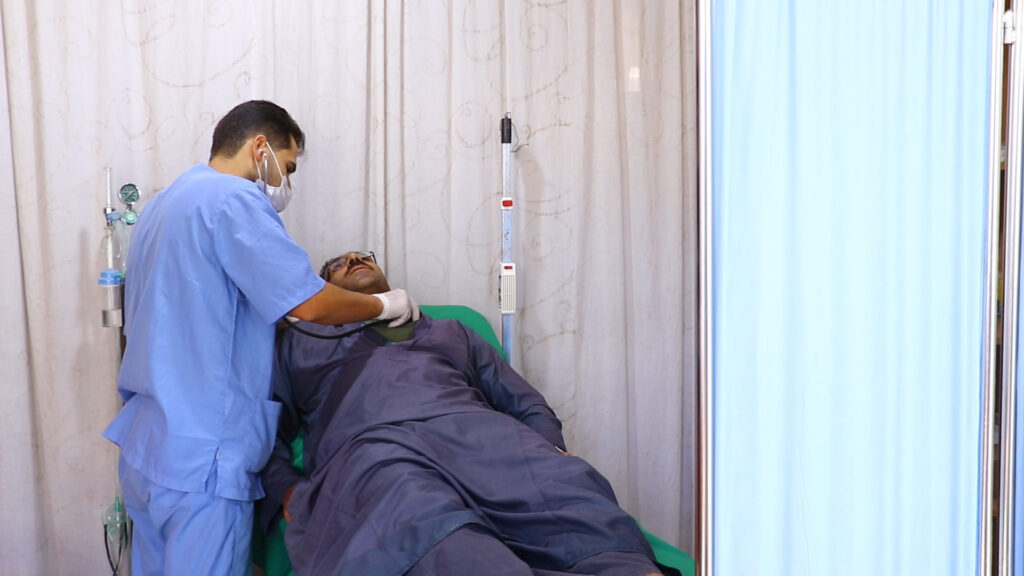
Hussein also worked with IDPs to establish an educational and entertainment space for children. Despite local efforts and initiatives, the camp remains in great need of support, especially during the pandemic and lockdowns when residents cannot leave the camp to work and provide for their families.
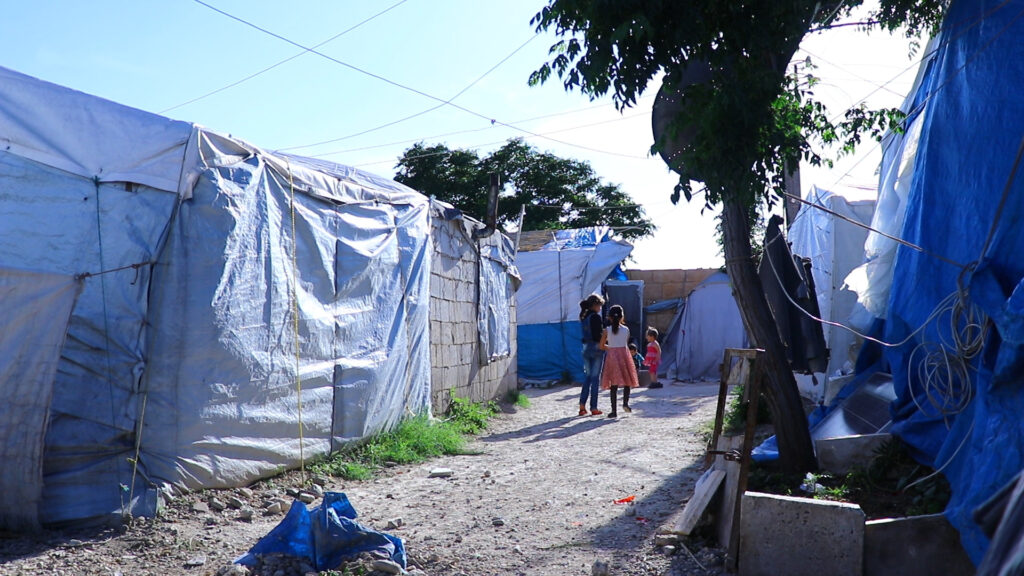
Like many of the camp’s IDPs, Hussein still dreams of returning to his home in Idlib: “I hope we can return home. We are staying at a camp, but we have houses, families and lands. I hope the injustice in all of Syria will end.”
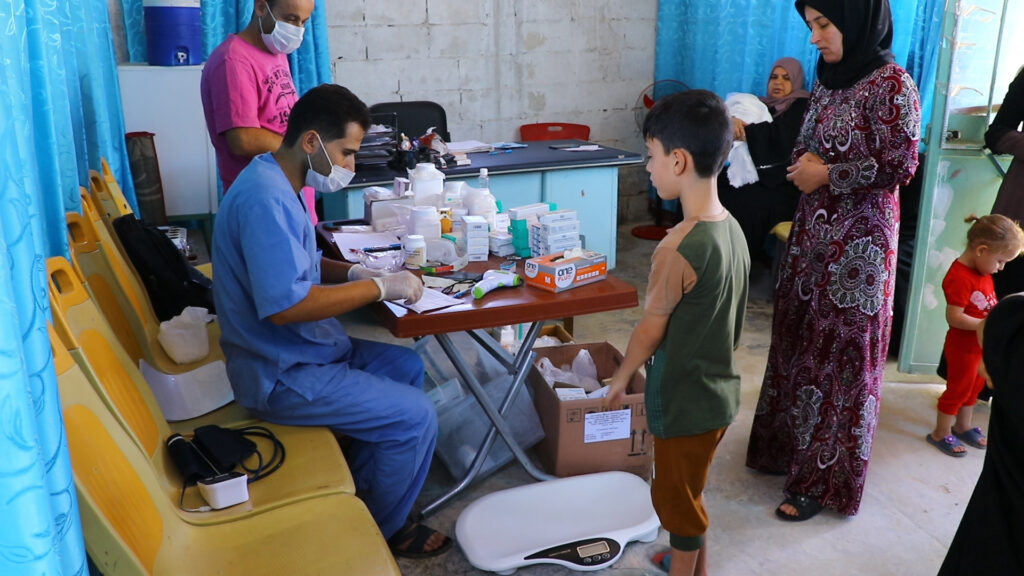
Hussein’s story is a testament to the resilience of Syrian IDPs under the grueling conditions of war and displacement. Many of the IDPs have utilised their skills and experiences to help communities in times of hardship. They remain hopeful that the conflict will come to an end and that someday they can return to their homes and live peacefully.

